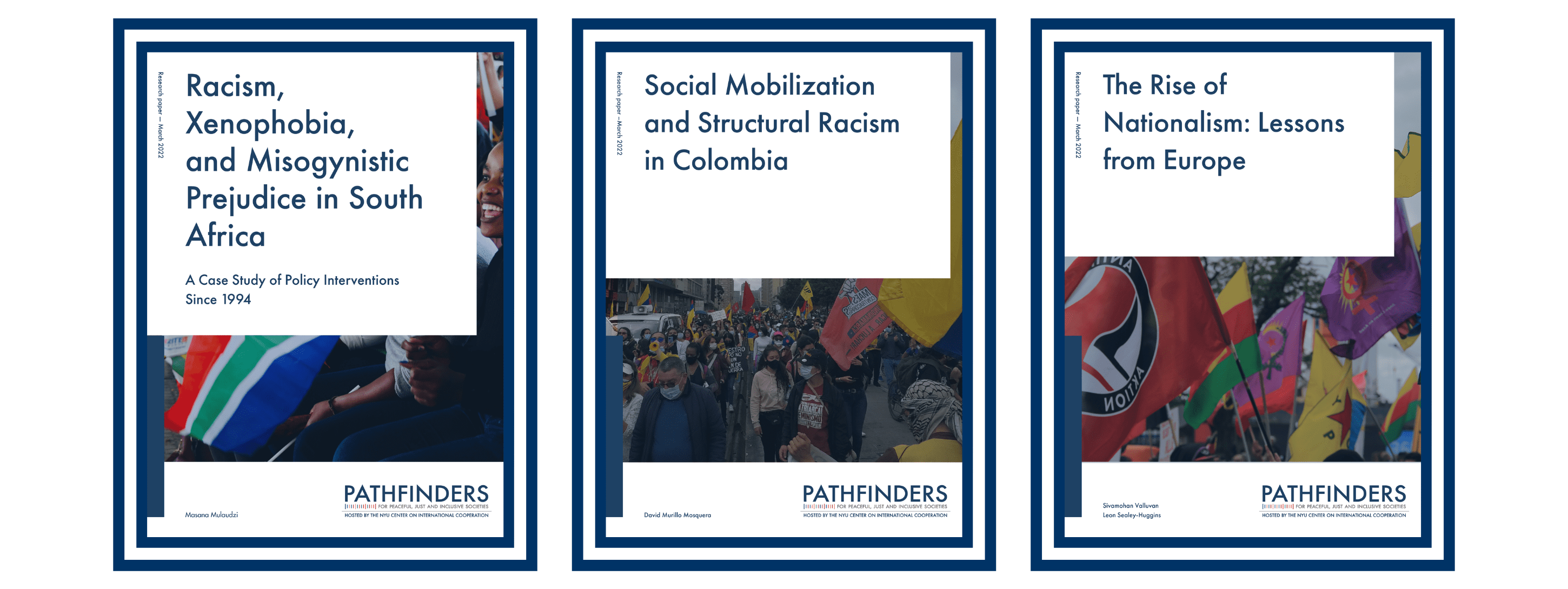What can we do to truly tackle group-based inequalities in society, and what can we do about this divisive narrative that is beating back progressives in large parts of the world? We asked three thinkers and activists in different parts of the world—South Africa, Colombia, and Europe—to draw on their local experiences to tell us how we can see progress on this issue. Despite geographic location, there was significant overlap in conclusions about the need for both policies to redistribute resources as well as recognize historic injustices.

Specific proposals in the papers include investment in public services, closing wealth and income gaps, sustained and meaningful mechanisms of dialogue and peacebuilding, legal protections and access to justice were themes across the papers. The central importance of civil society in giving voice to marginalized groups and holding governments to account was also repeated across papers, with the Colombia case study of protests last year a potent example of grassroots action.
- In the first paper of this series, Masana Mulaudzi reminds us of the challenges of undoing years of structural racism at the country level even where there are good intentions at the start of the process. While the money to finance redistribution and investment hasn’t always been made available following the end of Apartheid in South Africa, the foundational legislation that introduced a progressive framework and implemented a transitional justice process—the Truth and Reconciliation Commission–has contributed to an environment where civil society can pursue litigation, social movements, and mass campaigns related to ending prejudice and promoting equitable and just policy implementation.
- In the second paper, David Murillo Mosquera used the 2021 protests in Colombia to illustrate the role social movements play, and to call for a national dialogue alongside policies such as fast-tracking land titling to provide the Afro-Colombian community with secure housing and assets.
- In the third paper, Sivamohan Valluvan and Leon Sealey-Huggins discuss the rise of ethno-nationalism in Europe, and provides a helpful list on the actions that can be taken to counter ethno-nationalism – school curriculums that encourage empathy and provide historic context, tackling fearmongering and lies in the media, and a call for political leaders to resist cheap, short-term anti-immigration scapegoating.
Download the case studies ↓
- Racism, Xenophobia, and Misogynistic Prejudice in South Africa
- Social Mobilization and Structural Racism in Colombia
- The Rise of Nationalism: Lessons from Europe
This research paper is part of the Pathfinders Grand Challenge on Inequality & Exclusion. More information about this initiative can be found here.
